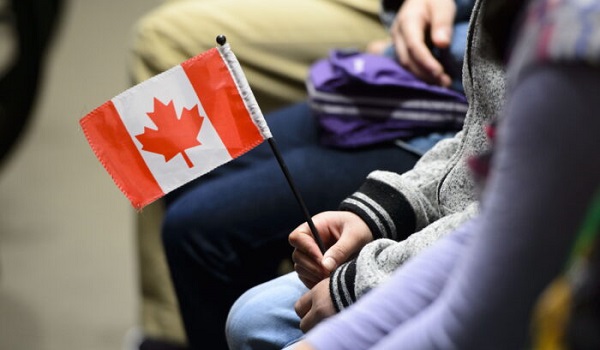Uncertainty surrounding the immigration system: Canada’s cuts to international student permits lead to fear of a brain drain
Rifatur Rahim has given up on a future in Canada.
The 27-year-old from Bangladesh, set to complete his master’s degree in development studies at York University this year, once hoped to build a life here. He knew it would be tough, having researched the high cost of living and rent in Toronto — but it was much harder than he imagined.
Rahim’s arrival in 2023 coincided with rising unemployment rates. Despite already having master’s degrees, he and his wife were unable to find work, even applying to jobs at Tim Hortons and Walmart.
Then came tighter immigration rules last year, with the federal government announcing it would be slashing the number of permanent residents and postgraduation work permit holders.
“I knew things were going to be bumpy but I didn’t expect them to be this bad,” Rahim said. “We’re not getting jobs. We are barely getting a good place to live and even permanent residency has become a murky thing — so we gave up on that.”
Experts warn that the tightening of immigration policies and limited opportunities could trigger a brain drain of needed talent, affecting the labour market and economy as international students rethink investing years and thousands of dollars on education in Canada without a clear path to permanent residency.
Tens of thousands of foreign students like Rahim come to Canada each year, with an immigration status allowing them to work and an opportunity for a path to permanent residence. Immigration, Refugees and Citizenship Canada’s informational video on “building a life in Canada” markets this approach as “Study. Explore. Work. Stay.”
“The time you spend in Canada as a student … counts towards eventually applying to become a Canadian citizen,” the video promises.
But after welcoming a record number of international students and newcomers to help lift the economy — more than one million international students lived in Canada in 2023, a 60 per cent increase from 2019 — Ottawa hit the brakes on immigration amid a housing affordability crisis and strain on social services. International study permits were also capped in a bid to target post-secondary international students in what Immigration Minister Marc Miller has called “diploma mill” colleges.
“There’s going to be a very noticeable lack of talented young workers,” said Rupa Banerjee, associate professor at Toronto Metropolitan University and Canada Research Chair of economic inclusion, employment and entrepreneurship of Canada’s immigrants.
“With a lot fewer international students applying, we’re going to see the downstream effects of that very soon in terms of fewer graduates in fields where we need people.”
Federal measures to cut foreign student numbers are already having a greater impact than expected, with Ottawa issuing 45 per cent fewer new study permits in 2024, far fewer than planned.
Canada dropped from the top study destination to third place over the last year, as a result of policy changes perceived as unwelcoming by prospective students, with many pausing or deferring their study permit applications. That’s according to data from ApplyBoard, an online marketplace for learning institutions and international students.
Ottawa’s plan to slash the number of immigrants over the next three years will result in a 1.7 per cent drop in the country’s gross domestic product by 2027, according to a recent report from Canada’s parliamentary budget officer.
New immigration targets are expected to cut Canada’s population growth by 1.4 million over the next three years, with permanent resident admissions dropping from 464,265 in 2024 to 365,000 in 2027, leading to 1.3 billion fewer hours worked, the federal fiscal watchdog said.
Banerjee notes that immigrants and non-permanent residents are often younger and come in as international students, who are more likely to participate in the labour market. Their reduced numbers further accelerate the decline in much-needed labour supply amid a rapidly aging population.
Scotiabank economist Rebekah Young agrees that the drastic cuts to both permanent and temporary immigration are going to have an impact on the economy.
Thousands of international students and workers on post-graduate work permits, once planning to stay, are now taking their talent elsewhere due to uncertainty surrounding immigration and the high cost of living.
“When you look at international students and those who have come into rigorous, recognized programs and disciplines in high demand and sectors of high productivity, there’s a real opportunity cost that Canada loses out on,” Young said.
Banerjee said the rising cost of living further discourages foreign students from investing their lives in Canada as they often face barriers in the job markets and earn significantly less than their Canadian peers upon graduation as they struggle to find jobs that match their qualifications.
For example, in 2023 international students with a bachelor’s degree earned a median annual income of $52,000, 20 per cent lower than Canadian graduates who earned $65,200, according to new research from Statistics Canada. This is partly because these students are over three times more likely than Canadian graduates to work in sales and service jobs that tend to pay less.
“The cost-of-living crisis has been happening for several years now, but (international) students came anyways — the sacrifices were worth it for the possibility of becoming a permanent resident in Canada,” Banerjee said.
“But without that (immigration) as a concrete possibility, I think students are not willing to take that financial risk.”
For 23-year-old Yatin Sharma of Norway, the decision to move back home after graduating from York in 2024 was easy.
“Things are very expensive in Toronto and salaries are not keeping up,” said Sharma, who worked part time as a legal assistant while completing his degree.
“When will I be able to afford a house?” he wondered. “Or even a condo or anything?”
Settling in Canada and working as a lawyer was once Sharma’s dream. But because of the uncertainty he moved back to Norway, where he is continuing his legal education.
“I still love Canada,” he said, but life was “quite unpredictable.”
“It would have been a gamble for me.”
This article was first reported by The Star













